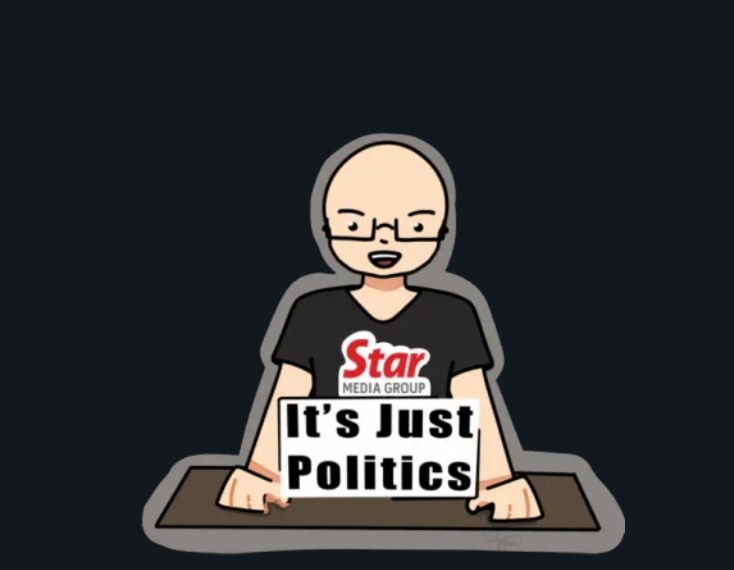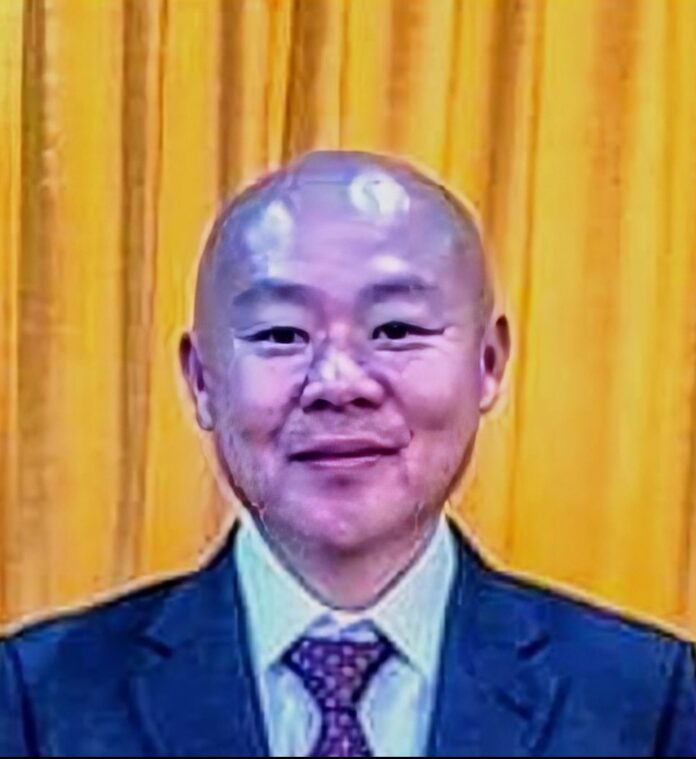By Datuk Philip Golingai

SOME Sabahans, including politicians and civil servants, have asked me about a viral message circulating on WhatsApp stating that Sabah Chief Minister Datuk Seri Hajiji Noor will announce the dissolution of the state assembly on Monday.
Here’s the message with a timeline:
“July 28, 2025: Hajiji announces the dissolution of the Sabah State Assembly (DUN).
“July 29 or 30, 2025: Hajiji meets with the Head of State (TYT) to submit the letter of dissolution for the Sabah State Assembly.”
Some believe in that message, which is unfortunate as it was obviously crafted by a person who has little knowledge of how a dissolution is carried out in practice.
My response to those who inquired about that message is this: The Sabah Chief Minister doesn’t have the power to dissolve the assembly.
He must obtain the consent of the TYT, the Tuan Yang Terutama.
If I am in a chatty mood, I’ll add that Hajiji is a seasoned politician who will not announce the dissolution of the assembly before seeking the consent of Sabah Governor Tun Musa Aman.
And if I’m in an especially chatty mood and am asked when dissolution could be, I’ll say after Malaysia Day on Sept 16, unless something big happens in the next few days or weeks.
The other viral message is about the purported awarding of a prospecting licence by Sabah Mineral Management Sdn Bhd (SMM) to a company linked to Datuk Seri Farhash Wafa Salvador Rizal Mubarak, Bumi Suria Sdn Bhd.
Some of those getting agitated on WhatsApp about this did not understand the difference between approval for an application to apply for a prospecting licence and the actual approval of a prospecting licence.
These people, and that includes several news portals, thought it was the same thing.
SMM can only issue a conditional letter of permission to apply for a prospecting licence; it is the Lands and Surveys Department of Sabah that has the authority to issue a licence.
In short, it is not true that SMM has awarded a prospecting licence to Bumi Suria.
But, as with most lies and misconceptions, the truth depends on which side of the political divide a person favours.
Haters will always hate.
No matter how much you explain, they will believe what they want to believe.
Which reminds me of how die-hard Pakatan Harapan/Pakatan Rakyat supporters believe that C4 explosives were used in the murder of Mongolian woman Altantuya Shaariibuu.
On June 24, 2014, the Federal Court heard that deputy solicitor-general II, Datuk Tun Abdul Majid Tun Hamzah, submitted that the prosecution had never said that one of the substances found at the crime scene was C4.
“We never said those explo-sives were those of C4. But these people from day one, said it was C4. We do not know how the Court of Appeal can say it was C4 explosives. We never said C4,” he said at the hearing of the prosecution’s appeal against the acquittal of two former UTK (Special Action Unit) personnel, Chief Inspector Azilah Hadri and Corporal Sirul Azhar Umar in the case.
Deputy public prosecutor Manoj Kurup, who assisted Tun Majid, said the substances found at the crime scene were PETN and RDX explosives.
Even with such testimony, many still believe that C4 was used. The C4 imagery used by the Opposition was powerful.
That’s the danger of hate.
When you hate a politician or a political party, you’ll believe whatever lies are said against them.
Pakatan politicians were good at this when Barisan Nasional was in power.
At that time, politics was more black and white – there were no grey shades. If Pakatan said Barisan was black (when in that particular accusation it was white), the Opposition crowd would believe it was black.
Now that Pakatan is in power, it faces the same challenges with shifting public perception and the difficulty of controlling narratives, especially when dealing with complex issues that are rarely black and white.
There is a misconception – which I don’t think is grey, as it is a factual issue that affects us daily – about the new Tenaga Nasional Bhd (TNB) tariff that came into effect on July 1 for Peninsular Malaysia: the Opposition has been very sceptical about it with Perikatan Nasional questioning the government’s guarantee that 85% of domestic users will not be affected.
According to anecdotes from friends and family members who have recently received their TNB bill, there has been a significant reduction in the electricity charge.
But there are friends, especially from the Turun Anwar (Step Down Anwar) crowd, who are dead set against the new tariff.
Perhaps they buy into Perikatan’s argument that if operating costs for companies increase due to higher electricity rates, those costs will inevitably be passed on to consumers, leading to higher prices for goods and services, thus indirectly affecting the public regardless of their own electricity bill.
Malaysian politics has intensified significantly, especially with the Opposition’s concerted Turun Anwar campaign and the impending Sabah state elections.
The false SMM allegations against Farhash, for instance, appear to be a deliberate Opposition strategy to brand him as Anwar’s Jho Low, who is infamously associated with former prime minister Datuk Seri Najib Razak.
According to a WhatsApp message I received, the strategy is being pushed by the usual suspects in the Opposition (I shall not name them, but if you close your eyes, I’m sure you can visualise who they are).
Anyway, that’s information from WhatsApp.
I should not believe it, as this is not the time to see these messages as black and white, but as rather shading into the grey.
This article has appeared in thestar.com.my

